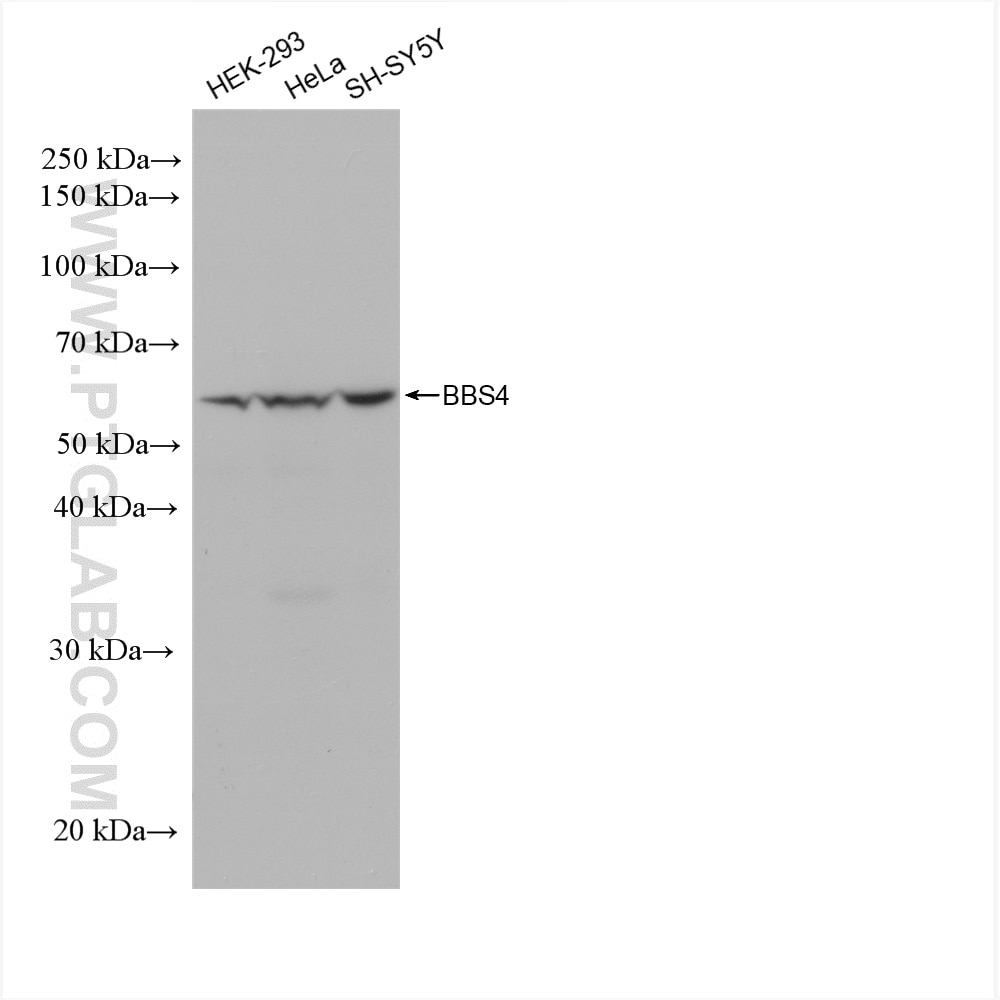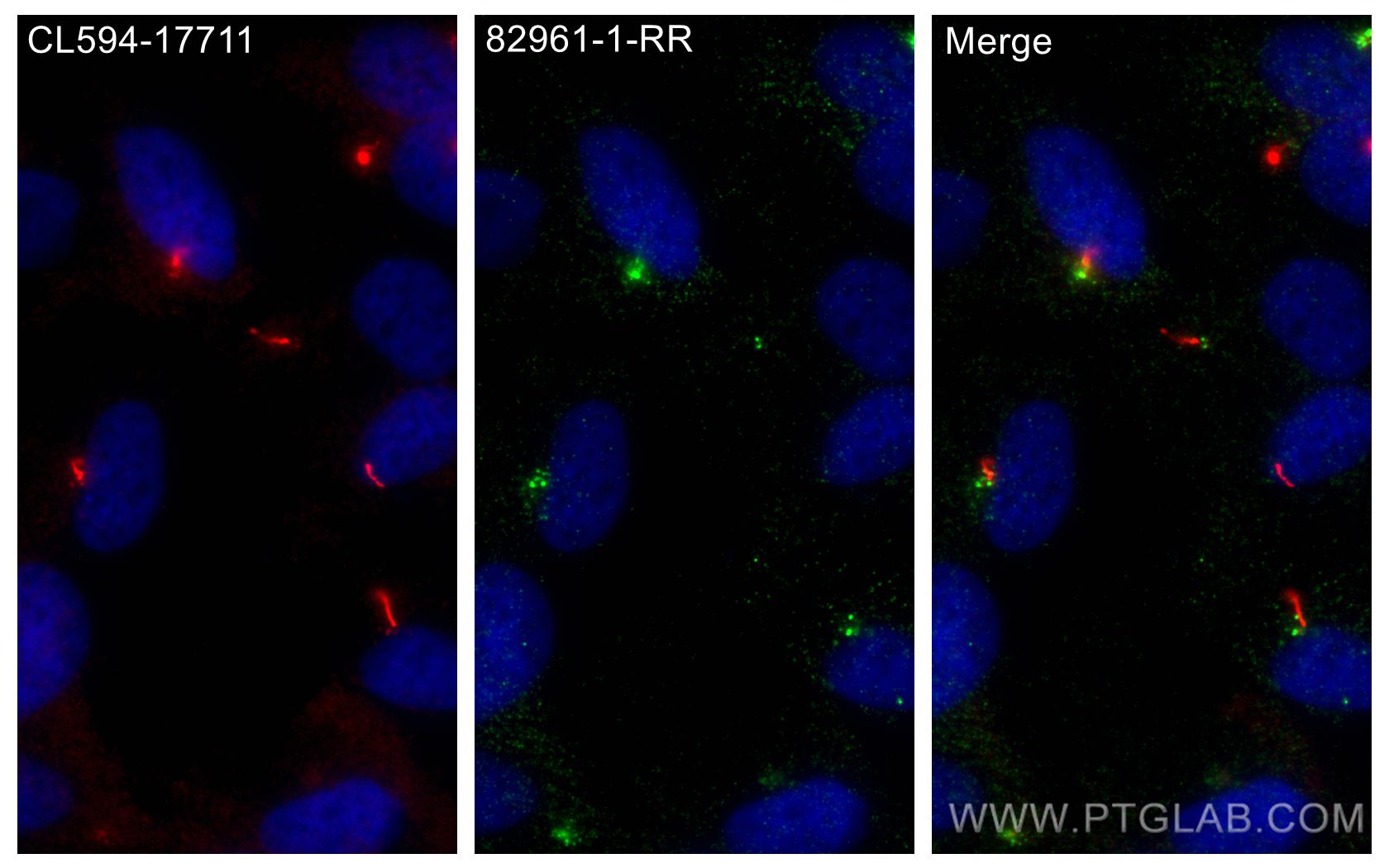BBS4 Recombinant antibody
BBS4 Recombinant Antibody for WB, IF, ELISA
Host / Isotype
Rabbit / IgG
Reactivity
Human
Applications
WB, IF, ELISA
Conjugate
Unconjugated
CloneNo.
230303C2
Cat no : 82961-1-RR
Synonyms
Validation Data Gallery
Tested Applications
| Positive WB detected in | HEK-293 cells, HeLa cells, SH-SY5Y cells |
| Positive IF detected in | hTERT-RPE1 cells |
Recommended dilution
| Application | Dilution |
|---|---|
| Western Blot (WB) | WB : 1:2000-1:10000 |
| Immunofluorescence (IF) | IF : 1:500-1:2000 |
| Sample-dependent, check data in validation data gallery | |
Product Information
82961-1-RR targets BBS4 in WB, IF, ELISA applications and shows reactivity with Human samples.
| Tested Reactivity | Human |
| Host / Isotype | Rabbit / IgG |
| Class | Recombinant |
| Type | Antibody |
| Immunogen | BBS4 fusion protein Ag3430 相同性解析による交差性が予測される生物種 |
| Full Name | Bardet-Biedl syndrome 4 |
| Calculated molecular weight | 519 aa, 58 kDa |
| Observed molecular weight | 60 kDa |
| GenBank accession number | BC027624 |
| Gene symbol | BBS4 |
| Gene ID (NCBI) | 585 |
| Conjugate | Unconjugated |
| Form | Liquid |
| Purification Method | Protein A purification |
| Storage Buffer | PBS with 0.02% sodium azide and 50% glycerol pH 7.3. |
| Storage Conditions | Store at -20°C. Stable for one year after shipment. Aliquoting is unnecessary for -20oC storage. |
Background Information
BBS4 (Bardet-Biedl syndrome protein 4) is one of the early BBS proteins discovered, with 35 mutations reported to cause the BBS phenotype (PMID: 26762677). BBS4 undergoes localization to the centriolar satellites of centrosomes and basal body of primary cilia, where it takes part in recruiting cargo to centriolar satellites and allowing the formation of a functional centrosomal microtubule organizing center (MTOC) (PMID: 25860617). Some research has found that BBS4 expression in humans during the development of CNS and sensory organs, concerning the cardinal clinical signs of BBS (PMID: 33860840).
Protocols
| Product Specific Protocols | |
|---|---|
| WB protocol for BBS4 antibody 82961-1-RR | Download protocol |
| IF protocol for BBS4 antibody 82961-1-RR | Download protocol |
| Standard Protocols | |
|---|---|
| Click here to view our Standard Protocols |



